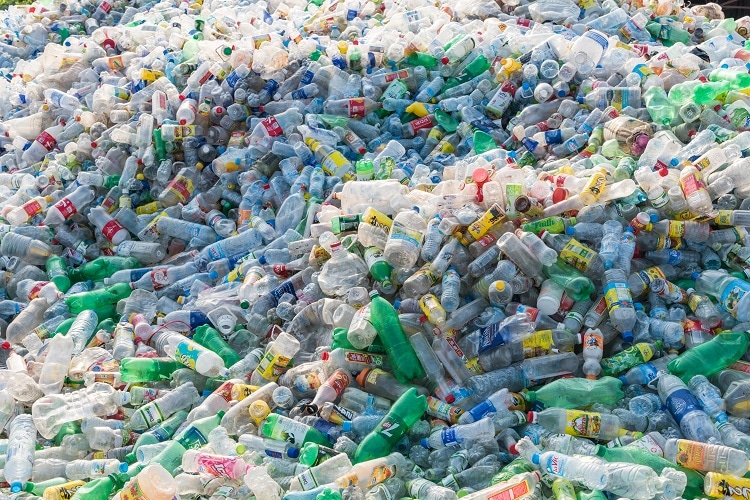
13 Apr Mutant Enzyme Recycles Plastic in Hours!
Corona has made recycling a remembrance of things past. But scientists have found an answer to bag and bottle woes. When the going gets tough… Check out this story about a powerful mutant solution to plastic pollution by Tiffany Duong. We curated the piece from EcoWatch.

Scientists have engineered a mutant enzyme that converts 90 percent of plastic bottles back to pristine starting materials that can then be used to produce new high-quality bottles in just hours. The discovery could revolutionize the recycling industry, which currently saves about 30 percent of PET plastics from landfills, reported Science Magazine.
Poly(ethylene terephthalate) (PET) is the plastic used in soda bottles, textiles and packaging. With almost 70 million tons manufactured annually worldwide, it is also the most abundant polyester plastic because it is strong and lightweight, explains the study’s abstract, which was published in Nature.
Unfortunately, current PET recycling is inefficient. When plastics of different colors are melted down during the recycling process, a gray or black plastic starting material results that few companies want to purchase to package their products, explained Science Magazine. The process results in low-grade plastic fibers only good enough for clothing and carpets, reported The Guardian. These eventually end up in a landfill or incinerated, added Science Magazine.
“It’s not really recycling at all,” explained professor John McGeehan, the director of the Centre for Enzyme Innovation at the University of Portsmouth, to Science Magazine.
McGeehan, who was not involved in the research, called the new enzyme “a huge step forward,” reported Science Magazine. He also noted that Carbios, the French sustainable plastics company behind the breakthrough, is the industry leader in engineering enzymes to break down PET at large scale, reported The Guardian.
For years, scientists at the forefront of the cultural war on plastic waste have searched for microbial enzymes that could break down PET and other plastics…


Sorry, the comment form is closed at this time.